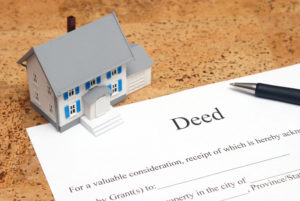
I see this all the time – a parent wants to make sure his or her adult children get the Florida house without going through probate. So, do they call an estate planning attorney? Of course not – lawyers cost money!
Instead, they consult with their neighbors, their Facebook friends, their second cousin’s nephew who practices corporate law in NYC, and, of course, Google, to see what they should do. Relying on this “free” legal advice, they download a fill-in-the blank quitclaim deed, complete and record it, and think they solved their problem.
No, as this article outlines, they likely just made things much worse. And now someone will likely either have to pay a lawyer a lot more to fix it, or the government and/or the nursing home will receive a lot more money than they would have if things had been done correctly.
The parent had good intentions. But he or she was focused on only one thing – avoiding probate (which, as the article points out, is fairly onerous in Florida). But the parent didn’t see the forest for the trees.
Probate is just one tiny issue in the huge estate planning puzzle. Did the parent consider what would happen if he or she needs nursing home care? Or what would happen if one of the children named on the deed dies? Or is sued or divorced? Or needs government benefits? Or has a child applying for college (the house is now considered the child’s parent’s asset). And what about taxes? Does it make more sense financially for your children to pay a $32,000 tax bill or a $5,000 probate bill?
The article mentions that life estate deeds or “transfer on death” deeds (we call them ladybird deeds in Florida) are a good option. Maybe, maybe not. They can also present problems.
An experienced estate planning and elder law attorney can help you recognize and address the pros and cons of every possible choice. There’s no one-size-fits-all when it comes to estate planning. Don’t be penny wise and pound foolish.
Other articles you may find interesting:
Titling Property Correctly for Your Estate Plan








